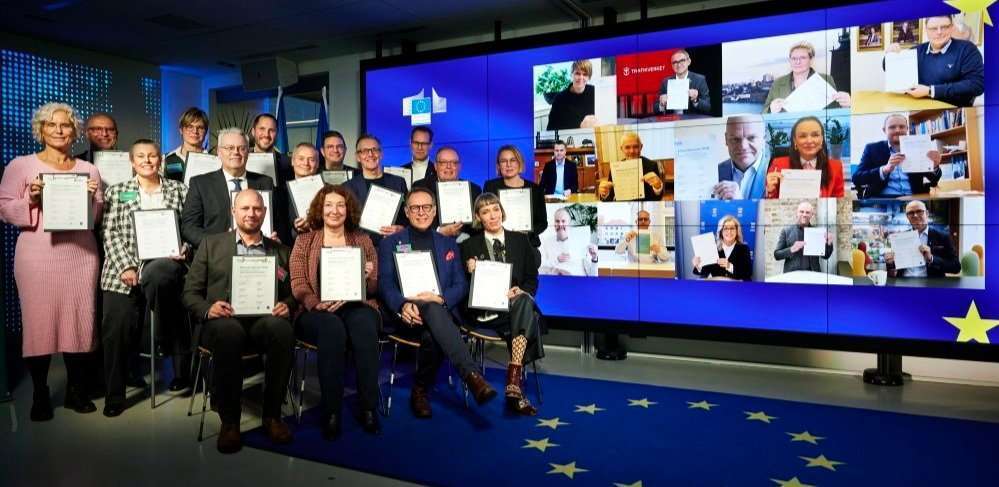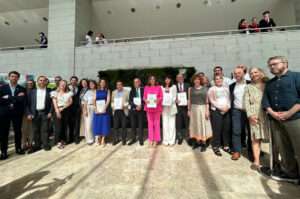With seven years left to achieve the mission of climate-neutral cities by 2030, radical implementation is required. In 23 Swedish pioneering cities, many initiatives are currently underway that contribute to the transition in various ways. Local companies are mobilizing together with municipalities, new ways to govern and lead the transition are being developed, new solutions that drastically reduce emissions are being spread and climate ideas from citizens are becoming reality. European Viable Cities Day, on December 8, will celebrate successes to date and sharpen future climate action.

From Skellefteå in the north to Malmö in the south, from big cities like Stockholm to rural municipalities like Mariestad, many actors are joining forces for climate change. Within Viable Cities, 23 cities, representing 40 percent of Sweden's population, and six government agencies are working to lead the way in the climate transition and pave the way for many others to follow. Climate City Contract 2030 is a tool for raising ambitions together continuously and in the long term, and on December 8, the 2023 Climate City Contract will be signed by the cities and the top management of the authorities.
- A year ago, Borås City signed Climate City Contract 2030 for the first time. During the year, we have developed valuable collaborations, for example with the real estate and construction sector. With our partners in the Climate Neutral Borås 2030 initiative, we have conducted several dialogues with both residents and the business community. We have developed a green economic framework that enables the City of Borås to finance sustainable investments.
- Ulf Olsson (S), municipal executive Chairman in Borås City.
Cities are "staring and snorting"
City interventions are taking place in all areas and involve an increasing number of organizations. And they are being copied. Viable Cities cities are 'looking at each other' to accelerate the local transition journey. Everyone in society needs to work in new ways to succeed. Different models for this are being developed at a rapid pace, for example in the form of local climate agreements. This year, nearly 400 companies are mobilizing together with municipalities in Umeå, Malmö, Karlstad, Gävle, Helsingborg, Kristianstad, Linköping, Eskilstuna, Borlänge and Uppsala.
New solutions that drastically reduce emissions are spreading: for example, 50 percent lower electricity consumption in Örebro's municipally owned housing company ÖBo, digital support to help more people commute climate-smart in Borlänge, and more wood as a building material in Skellefteå and Växjö, for example.
At the same time, many of the actions provide other benefits in addition to reducing climate impact, such as cleaner air, greener environments, lower costs and increased competitiveness.
- In Växjö, we have good experience of the positive effects of climate change on society as a whole. The transition to a bio-based energy system benefited local forest owners and contributed to reduced vulnerability and increased economic growth. I am convinced that the transition we need to make in the transport sector will also bring positive effects in the form of increased attractiveness, fewer accidents and better public health.
- Malin Lauber (S), Municipal Executive Board Chairman of Växjö Municipality.
From Sweden to the world
European Viable Cities Day - organized by the European Commission Representation in Sweden and Viable Cities - is a bridge between all the work going on in Sweden and within the EU for the mission of climate neutral and sustainable cities. In Europe, over 100 cities, including several Swedish ones, are aiming for climate neutrality by 2030, as part of the EU Green Deal with the overall goal of a climate-neutral continent by 2050.
- Right now, the EU is driving the climate transition in a very positive way. But this must be combined with additional measures at national, regional and local level. The EU does not have all the tools. In the field of transport, cooperation between different actors is particularly important, and the climate contracts are another way to increase the important cooperation between the Swedish Transport Administration and the municipalities.
- Roberto Maiorana, Director General of the Swedish Transport Administration.
Transportation of people and goods accounts for a large share of climate emissions that must be radically reduced. To solve this, many actors in society need to be involved. The system demonstrators tool is currently being developed within Viable Cities. The tool will make it easier to meet complex challenges, such as achieving climate-smart mobility. Two cities are testing this together with a wide range of stakeholders, Lund and Stockholm.
- We are convinced that system demonstrators will be an invaluable tool for the local transition journey in the coming years, in Sweden, in the EU and globally. Now we need both courage and action from everyone: public organisations, business, research institutes, civil society and politicians.
- Olga Kordas, Program Manager Viable Cities.
Watch the event afterwards here



